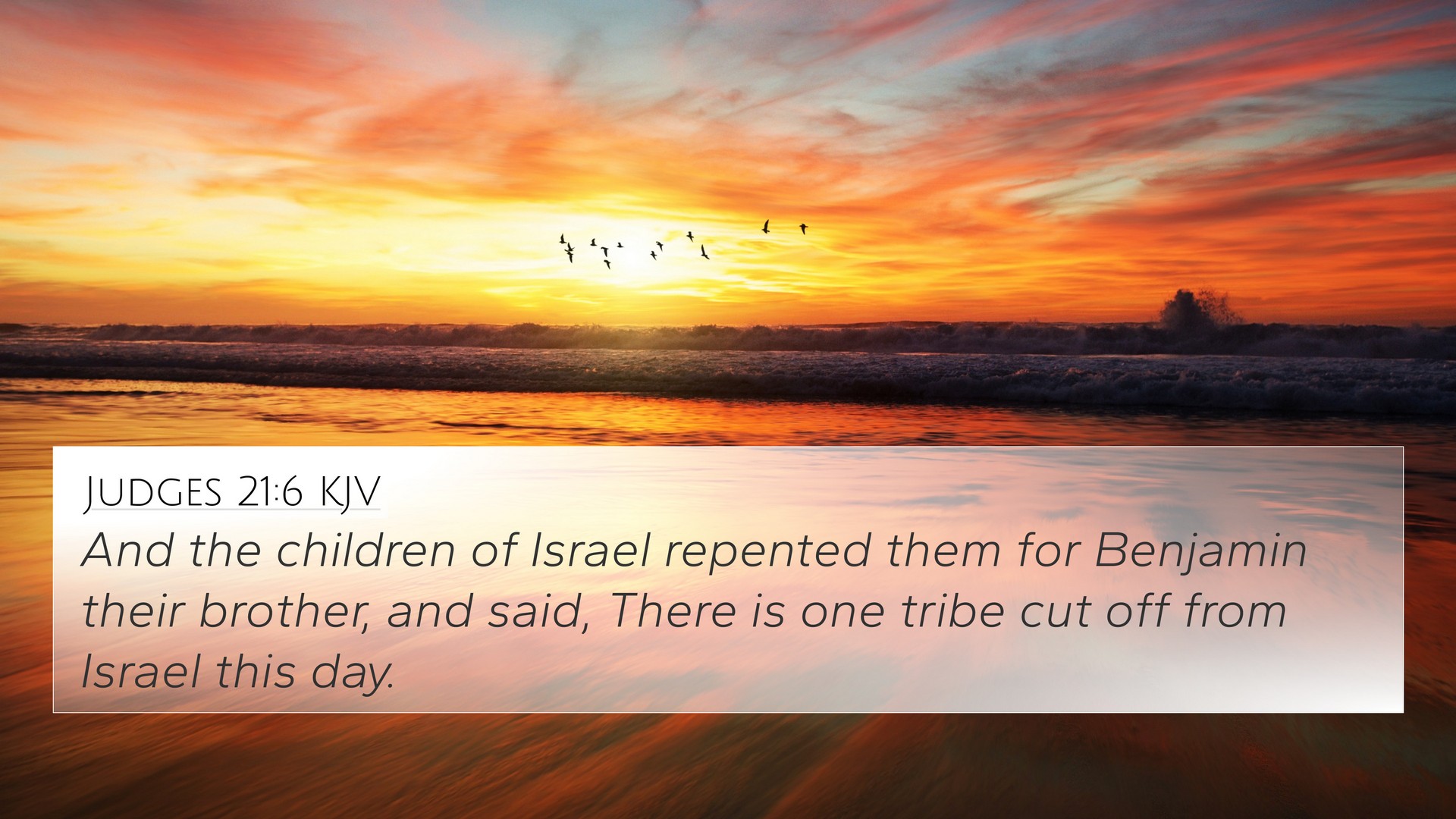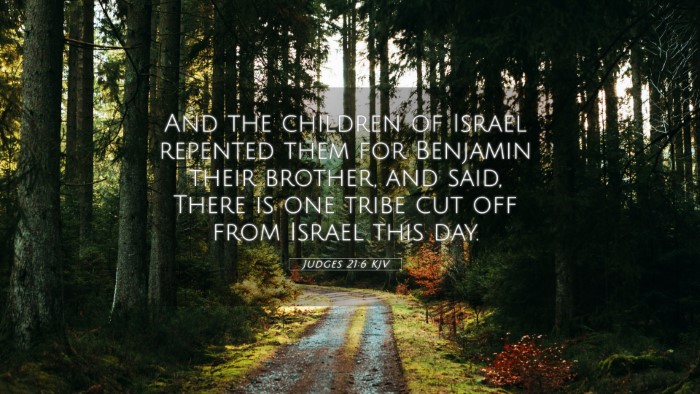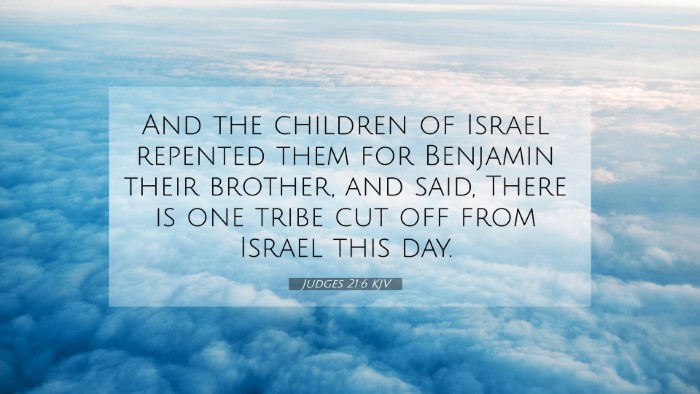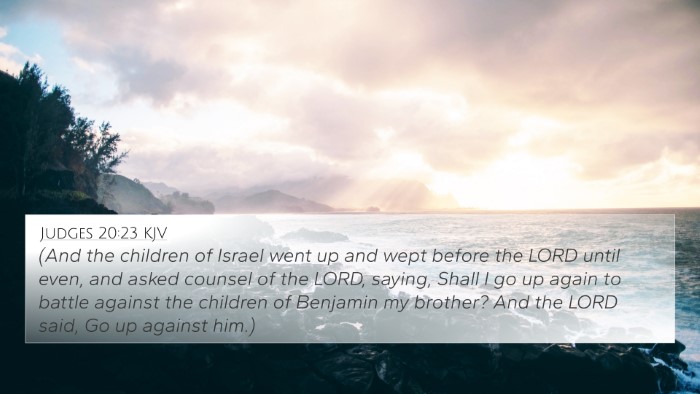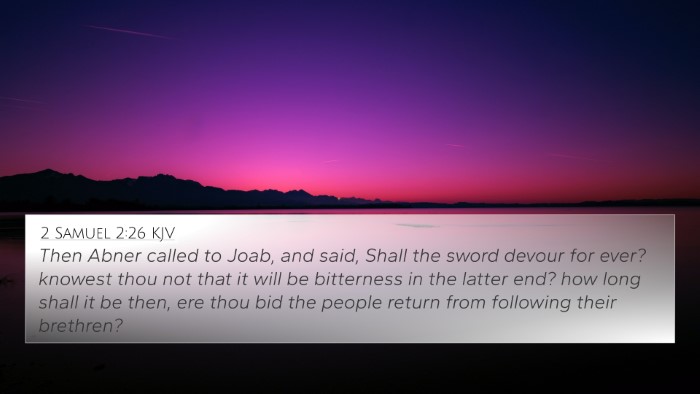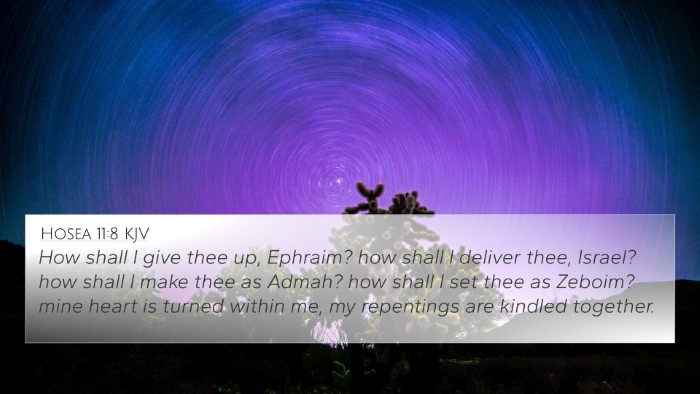Understanding Judges 21:6
Judges 21:6 states: “And the children of Israel were sorry for Benjamin their brother, and said, There is one tribe cut off from Israel this day.” This verse captures a moment of deep emotional regret and collective sorrow among the Israelites following the devastating civil war that pitted the tribe of Benjamin against the other tribes. The context is vital in understanding the implications of their lamentation and its theological significance.
Summarized Meaning
This verse reflects the tension and tragedy experienced by the Israelites, showcasing their mourning for a brother tribe. Their sorrow implies a recognition of the consequences of fraternal conflict, illustrating themes of unity, loss, and the dangers of internal strife. As Albert Barnes notes, this was a moment of significant loss for the nation of Israel, deepening the understanding of societal cohesion.
Theological Insights
The Israelites' regret showcases key theological themes prevalent throughout the Bible, including the significance of brotherhood, the pain of separation, and divine justice. The emotional response of the people indicates a search for restoration and reconciliation, which can be connected to broader biblical narratives that emphasize forgiveness and communal healing.
Cross-References for Judges 21:6
- Genesis 49:27: Jacob’s prophecy about Benjamin, which underscores the character and fate of the tribe.
- Deuteronomy 19:6: Laws regarding the cities of refuge pointing to the theme of justice among brethren.
- 1 Samuel 11:8: The assembly of Israel at Jabesh Gilead emphasizes unity in times of trouble.
- 1 Kings 12:24: God’s directive regarding the unity of Israel, reflecting the importance of tribal bonds.
- Psalm 133:1: A Psalm that extols the beauty of unity among brethren, resonating with the lament of Judges 21:6.
- Matthew 18:15: Instructions on reconciliation among brethren, aligning with the need for restoration after conflict.
- Romans 12:10: Encouragement towards brotherly love, outlining the New Testament perspective on community unity.
Comparative Analysis of Related Verses
When examining the connections between Bible verses, one observes that Judges 21:6 reflects deep sorrow similar to that found in Luke 15:32, where the father mourns the loss of his son. Such inter-Biblical dialogues enrich our understanding of God's intentions for His people. The lamentation in Judges can also be compared to Matthew 26:75, where Peter weeps bitterly after denying Jesus, showing the deep emotional impacts of regret and reflection on past actions.
Tools for Deeper Study
To facilitate understanding of the Bible verse meanings, various resources can be employed:
- Bible Concordance: A tool to find specific verses and their connections.
- Bible Cross-reference Guide: Resources that outline connections between verses.
- Bible Reference Resources: Comprehensive collections of themes and their corresponding scriptures.
- Cross-reference Bible Study: Methods to explore how verses relate across biblical narratives.
Conclusion
In conclusion, Judges 21:6 serves as a poignant reminder of the importance of unity and the consequences of division within communities of faith. It calls believers to reflect on their relationships and encourages a pursuit of reconciliation. By utilizing various cross-referencing methods, one can uncover profound insights and deeper connections throughout the Scriptures, enriching one's spiritual journey and fostering a more profound understanding of biblical themes.
For those engaging in cross-referencing Bible study, a deliberate approach to exploring connections between Old and New Testament narratives can illuminate deeper meanings, enhance understanding of God's word, and foster a more integrated view of Scripture.
